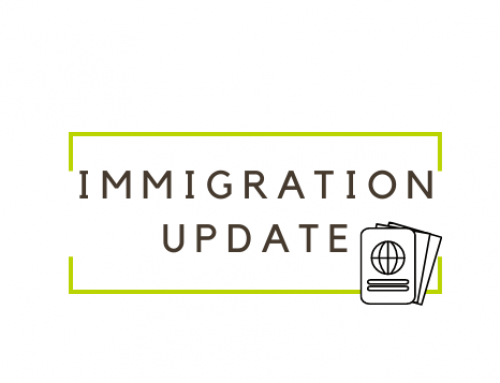As part of the government’s drive to make the UK a less attractive place for illegal immigrants a controversial new scheme has been introduced by the Immigration Act 2014 that places an obligation on landlords to check the immigration status of their tenants before entering into tenancy agreements for residential accommodation. The scheme was launched in Birmingham, Walsall, Sandwell, Dudley and Wolverhampton on 1 December 2014 and will be extended across the UK during the course of 2015, although the exact dates and locations have not yet been released.
Landlords who let property to tenants who do not have the right to rent may be liable for a civil penalty of up to £3,000 if the necessary checks have not been made.
The scheme applies to tenancies of residential accommodation which are those tenancies where the tenant will use the property as their only or main home. This is a question of fact and includes situations where properties are sub-let or when a landlord or occupier takes in a lodger. However, Halls of Residence occupied by students are excluded from the scope of the scheme.
Who has the Right to Rent?
British citizens, EEA and Swiss nationals and those individuals with indefinite leave to remain in the UK have an unlimited right to rent and a landlord cannot be held liable under the scheme for renting property to those individuals.
Prospective tenants who have a limited right to remain in the UK will have a corresponding limited right to rent while they have valid leave to remain in the UK. Landlords will have to carry out follow up checks to make sure these tenants retain their right to rent.
A person who requires permission to be in the UK and does not have it will not have a right to rent and is not permitted to occupy residential accommodation. Landlords may be liable for a civil penalty under the scheme if they rent property to such individuals.
What checks should the landlord carry out?
The scheme only applies to residential tenancy agreements entered into after the date on which the scheme is implemented in the area in which the property is located. Landlords do not need to conduct checks when extending an existing tenancy.
Prior to entering into a tenancy agreement, the landlord must inspect one or more specified documents which will confirm whether a tenant has a right to rent. Usually these documents will be a passport, national ID card or evidence of leave in the UK such as a biometric residence permit or a visa endorsement contained in a passport although there are other specified documents. Landlords must inspect the original document in the presence of the holder (either in person or via videolink).
If the documents indicate that the tenant has an unlimited right to rent, they must only be inspected once and the landlord will not be liable for a civil penalty. If the documents indicate that the tenant has a limited right to rent, the landlord must conduct a follow up check after a period of 12 months or within 28 days of the date of expiry of the document evidencing the right to be in the UK, whichever is later. If the tenant cannot provide evidence of their continued right to rent, the landlord is not required to evict them but must make a report to the Home Office.
A landlord found to have let residential accommodation to a tenant who does not have the right to rent may be liable to a civil penalty of up to £3,000 if the correct checks have not been made.
Landlords are able to delegate their obligations under the scheme to an agent providing there is a written agreement stating that the agent will be responsible for carrying out the necessary checks.
A code of practice setting out further information on the scheme can be found here or for assistance in complying with the scheme please contact Danielle Ramdel or Clare Taylor in our Immigration Department.







